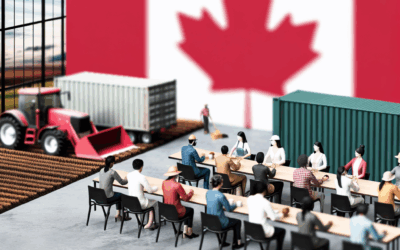Annexation Jokes and Trade Wars: The U.S.-Canada Relationship Under Pressure
Throughout history, political rhetoric has often blurred the line between satire and serious policy discussions. One recurring theme among certain American politicians and commentators has been the suggestion—sometimes in jest, sometimes not—that the United States should annex Canada. At the same time, U.S. presidential policies in recent years have ignited trade wars through mounting tariffs, significantly affecting the economic ties between the two nations. This article examines how these two seemingly distinct issues are interwoven, the political implications of such rhetoric, and the economic fallout resulting from aggressive trade policies.
Political figures have, on occasion, floated the idea of annexing Canada, often as a tongue-in-cheek remark. However, such comments, when voiced by influential individuals, can carry weight beyond their intended humor.
For example, during Donald Trump’s presidency, his administration imposed tariffs on Canadian steel and aluminum, citing national security concerns. While this move was framed as an economic measure, it strained diplomatic relations and reinforced narratives of U.S. economic dominance over its northern neighbor. Additionally, certain political commentators have casually suggested annexing Canada, sometimes under the guise of shared cultural and economic ties or strategic benefits.
While some defend these remarks as lighthearted quips, others argue that they echo a deeper, imperialistic mindset that disregards Canadian sovereignty. Such rhetoric, even when not intended as policy, can create diplomatic tensions and embolden nationalist sentiments on both sides of the border.
Alongside these rhetorical flourishes, U.S. presidential policies in recent years have significantly impacted Canada through the use of tariffs and trade disputes. The Trump administration’s renegotiation of NAFTA into the USMCA was a prime example of how economic nationalism influenced U.S.-Canada trade relations. While the agreement ultimately provided stability, the prolonged negotiations and threats of further tariffs created uncertainty for Canadian industries and businesses that rely on U.S. markets.
The effects of these trade policies extended beyond steel and aluminum tariffs. The U.S. has also imposed tariffs on Canadian softwood lumber, leading to countermeasures and retaliatory tariffs from Canada. While some argue that these moves were necessary to safeguard American industries, others contend that they ultimately hurt businesses and consumers on both sides of the border by increasing costs and disrupting supply chains.
The casual talk of annexation and the aggressive use of tariffs share a common ideological thread: economic nationalism. The idea of expanding U.S. territory aligns with the belief in an America-first approach to global politics and economics, where national sovereignty and economic dominance take precedence over multilateral cooperation.
Moreover, such rhetoric and policy choices can reinforce each other. When leaders suggest annexation, even jokingly, it may signal to Canadians that the U.S. is willing to take unilateral actions, including in trade. Likewise, protectionist trade policies can embolden nationalist rhetoric, as economic self-sufficiency is often framed as a justification for expansionist ideas.
While jokes about annexation may seem harmless on the surface, they can contribute to real diplomatic tensions, just as aggressive trade policies can lead to economic consequences. Both phenomena reflect a broader shift in U.S. political discourse toward nationalism and unilateralism. As the U.S.-Canada relationship remains crucial for both economies, policymakers and commentators alike must recognize the power of their words and actions in shaping both perception and reality across the border.



